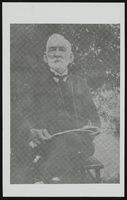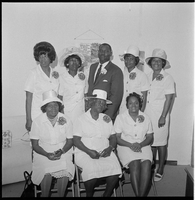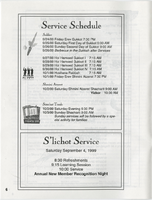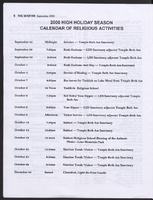Search the Special Collections and Archives Portal
Search Results
Audio clip from interview with Lynn Rosencrantz, January 7, 2016
Date
2016-01-07
Archival Collection
Description
In this clip Lynn Rosencrantz describes what it is like for her to be Jewish in Las Vegas, Nevada as an adult.
Sound

Chabad Times newspaper of Chabad of Southern Nevada, 2000-2002
Date
2000 to 2002
Archival Collection
Description
Issues of Chabad Times, a publication of Chabad of Southern Nevada, for the years 2000, 2001, and 2002. The newspaper includes information and photographs about local events, advertisements, advice columns, and general interest articles.
Text

Chabad Times newspaper of Chabad of Southern Nevada, 2003-2004
Date
2003 to 2004
Archival Collection
Description
Issues of Chabad Times, a publication of Chabad of Southern Nevada for the years 2003 and 2004. The newspaper includes local interest stories, advertisements, and advice columns.
Text

Reverend John Bain: photographic print
Date
1900 (year approximate) to 2000 (year approximate)
Archival Collection
Description
From the UNLV Special Collections Photograph Collection on Book Illustrations (PH-00170) -- Reverend (Rev.) John Bain. Handwritten on verso: "From: First United Methodist Church of Las Vegas, Nev. [Nevada] (title page), (Rev. [Reverend] John Bain."
Image


Pagination
Refine my results
Content Type
Creator or Contributor
Subject
Archival Collection
Digital Project
Resource Type
Year
Material Type
Place
Language
Records Classification




